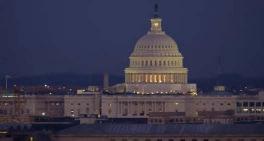Nominee's attack on Democrats poses risk to Supreme Court
Bar Associations
Brett Kavanaugh's angry denunciation of Senate Democrats at his confirmation hearing could reinforce views of the Supreme Court as a political institution at a time of stark partisan division and when the court already is sharply split between liberals and conservatives.
The Supreme Court nominee called the sexual misconduct allegations against him a "calculated and orchestrated political hit" by Democrats angry that Hillary Clinton lost the 2016 election. Kavanaugh went further than Clarence Thomas, who in 1991 attacked the confirmation process but didn't single out a person or political party, when he confronted allegations that he sexually harassed Anita Hill.
The comments injected a new level of bitter partisanship in an already pitched battle over the future of the Supreme Court and replacing Justice Anthony Kennedy, frequently the decisive and swing vote on the most important issues of the day. Kavanaugh is more conservative than Kennedy and his ascendance to the high court would entrench conservative control of the bench for years.
"No matter what happens ... I think the court is the ultimate loser here. I think Judge Kavanaugh could have made the exact same points without making reference to the Clintons or Democrats, without going down that road," said Josh Blackman, a law professor at the South Texas College of Law in Houston. "It's an optics thing. I don't think he'll vote any differently because of what happened in the past 10 days, but what will change is how people perceive it."
In his pointed remarks, Kavanaugh said he was a victim of character assassination orchestrated by Democrats. "This whole two-week effort has been a calculated and orchestrated political hit, fueled with apparent pent-up anger about President Trump and the 2016 election, fear that has been unfairly stoked about my judicial record, revenge on behalf of the Clintons and millions of dollars in money from outside left-wing opposition groups," he said.
Related listings
-
Trump's personal attorney has dropped a pair of libel suits
Bar Associations 04/11/2018President Donald Trump's personal attorney dropped a pair of libel lawsuits against BuzzFeed and investigation firm Fusion GPS amid the stir caused by an FBI search of the lawyer's files.Michael Cohen had sued in New York City over publication of the...
-
Court rules that Kushner firm must disclose partners' names
Bar Associations 01/11/2018A federal judge ruled Friday that the family company once run by Jared Kushner isn't allowed to keep secret the identity of its business partners in several Maryland properties.A U.S. district judge in the state rejected the argument that the privacy...
-
California hits Gatorade in court for "anti-water" videogame
Bar Associations 10/06/2017Gatorade has agreed not to make disparaging comments about water as part of a $300,000 settlement reached Thursday with California over allegations it misleadingly portrayed water's benefits in a cellphone game where users refuel Olympic runner Usain...

Car Accident Lawyers in New Rochelle, New York
If you have gotten in a car accident, it could seriously change your life. Whether the accident was caused by the other party’s fault or a fault of your own, you’ll want to to make sure that you are ready to prepare yourself for any cases that might follow.
Immediately following any type of car accident, it is important to take certain steps to ensure that the courts will treat you with respect and fairly. First, assess your mental and physical condition. Make sure right after the accident, you document any information regarding the accident and situation, it can be of great help later on.
You’ll want to make sure that you seek professional help for any medical conditions you may be experiencing. Do not wait to seek medical attention, you’ll want to make sure that you have documented evidence of the injury that was caused by the accident. The amount of treatment is also taken into consideration in every case.



